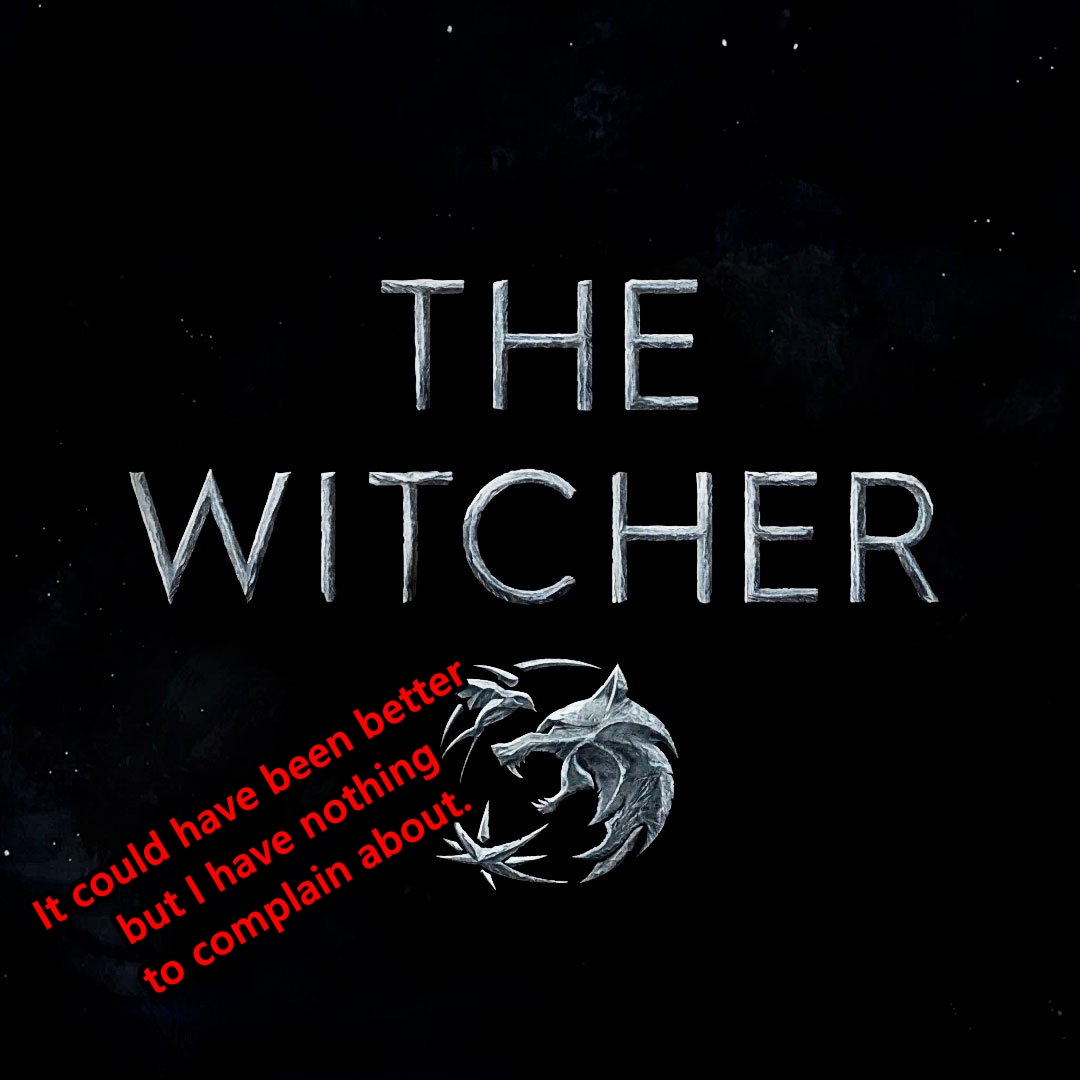
Finally, the day came when I felt like taking a second screening. It was important to me to postpone the review until then because sometimes I have it so that I approach certain things too critically or too positively. As with many series, this doesn't really bother me, so with "The Witcher" I wanted to be as neutral as possible, not to suggest a plus or minus. The text can sometimes be a little chaotic, I can hook a few threads several times, but I wanted to reflect some, in my opinion, unjustified accusations against the series. I watched with the original soundtrack and subtitles because this is my default form of watching. I will survive a teacher since poverty, but I can't stand dubbing unless it is games or cartoons for children. However, I decided that in the 3rd screening I would listen to myself completely in Polish because apparently, our version is really good. Well, I invite you to my spoiler review of the series. I also warn you that I'm talking about a few things that will probably be in the next seasons.

Honestly, I do not want to carefully analyze the series thread by story and compare it with the book. This does not make much sense, because adaptations (if they are not advertised as faithful film adaptations) must in principle change something. Shorten/lengthen some threads, show them known threads, but in a slightly different way, add things that the author did not think about (e.g. partly by laziness, like Togashi from the manga "Hunter x Hunter" or Sapkowski in books), and which should find there. I do not know if I will put it correctly, it is a consequence of building the world. Something that has, for example, "Fullmetal Alchemist" or "One Piece", and which is not DBZ, "The Witcher", "Star Wars" (movies, not the series "The Mandalorian"). The more I do not want to analyze, because you can see that the showrunner and Henry Cavill really liked this universe and they are not driven solely by the desire to earn cash. I think they really want to bring Sapkowski's world to the screen as faithfully as possible. Sure, some threads suffer a lot, but you can see that they've done their homework and are familiar with the original. Let's start with the episode, which adapts the story with a hedgehog from Erlenwald. The fact Geralt is in the castle of Queen Calanthe for other reasons, but it looks roughly the same as in the book, and in the end comes out the same - binds to Ciri's destiny. In addition, we get a more wonderful Dandelion, which is exactly the same as in the books. Do you remember what I said about the game and book Lambert and Regis? Well, in the case of the series and book Dandelion is similar. They both fly after the brides, they don't shut up, they talk nonsense, they can be annoying, they both look so young and cute that it's difficult to estimate their age. Although most of their accounts from this episode are the ideas of the creators of the series, I can easily imagine a book bard in these scenes or conversations between him and Geralt. The fragment in which White Wolf rescues Bard's ass immediately reminded me of several similar scenes from books. Especially the moment when Dandelion has to pretend for a moment a eunuch, who was deprived of part of his masculinity by a close encounter with the donkey's hoof. You can feel a similar chemistry between them as in Sapkowski's written word. As in anime, TV series and movies, I don't like such silly comic-relief characters, I think I liked Dandelion even more than his original book.
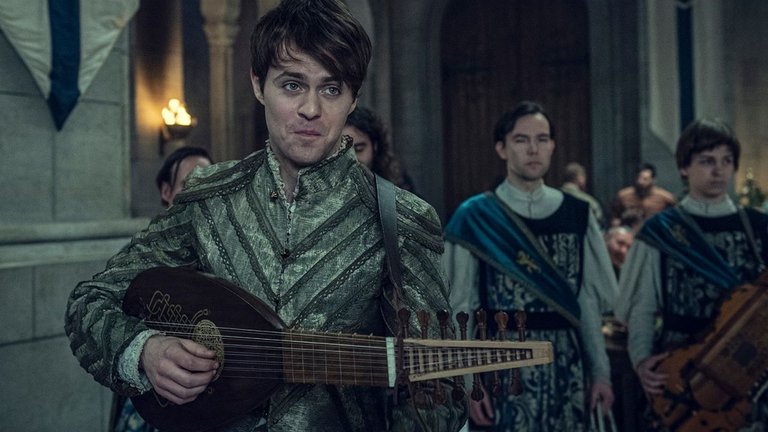
Some of the author's ideas escape people, or they didn't remember it too much. I am not surprised, Sapkowski only mentioned many things (relatively - he gave certain things clear to understand, but in a sparing way) or mentioned here and there, as in the case of Yennefer's story. It is 80-90% like in the book. She has an affair with Istredd, speaks familiar texts, behaves very similarly, etc. Only that in the book we didn't usually have too extensive fragments about her history, it was limited mainly to short memories - whether it was about learning the magic, staying in Aretuza, times like Yenna she was humped, etc. I can agree with the criticism of not depriving wizards or sorcerers of fertility because Sapkowski clearly pointed out that only a few have it (like Vienna, mother of the main character) or have retained reproductive capacity. If a beautiful woman came to Aretuza who did not have to improve her body and would be intelligent and hard-working, she would remain fertile. Reproduction is the price you have to pay in exchange for a visual level-up. This is what the translations of older and smarter figures of this universe say, according to some, fertility is not an obstacle to learning magic, and at most, it could slow down it, disturb the balance (if, for example, Vilgefortz did a lot of children with some talented sorceress, they would have their own mini-army, so that they could grow too strong) or free the magician from the power of the Chapter of Wizards. After all, people always defend their families more, especially children than in the workplace. Others say, quite rightly, that a kid requires a lot of attention, and learning magic, spells, chaos, etc. requires even more. However, the show has not been clearly said that only Yenna lost reproductive organs, only suggested. Maybe I missed something in the episode in which she returns to Aretuza and explained to young adepts, but it was not said in the context of her peers. In the second season, you can add in one or two sentences that everyone gives their fertility for access to stronger magic ... I don't know to receive an official license, as in the anime "Hunter x Hunter" or "Fullmetal Alchemist". Because they knew magic before visiting a great beauty salon.
nc_ohc=IsLPMuu-PgAX9q8XD7&_nc_ht=scontent-frt3-2.xx&_nc_tp=6&oh=16abe5c4122f742170e388fab74d4b7f&oe=5EF44F81
I can agree that Yenn's attitude is different from book one, but I don't mind that much. Sure, it changes the optics a bit to Yennefer, because thanks to the changes in scriptwriters she looks a bit like a fussy feminist who wants to have everything "because", instead of the usual, loose, but aware of her worth and strength of the bitch. In other words - he is an arrogant person who wants to be the most important and have everything, but he has so much strength and confidence that he can afford a certain dose of arrogance. Apparently it's a slight change, but after juxtaposing the worldviews of both sorceresses with the smell of meringue and gooseberry, you can see the difference immediately. Does this bother me? A bit, but not really. They do not expose it enough to irritate me. Maybe it would be different if her character were changed more. As my colleague, Ola noticed, Yennefer is at a different stage of her life at the time, so she could have been like that for a while, it doesn't conflict with her perception of the world and history. Oh, one more remark, to those clinging to the wizard's appearance. Sapkowski did not add this issue in the books (he wrote that they were converted into beautiful women, but with some flaws that could not be removed, but he did not describe the process in detail), so the fact of its existence is not a deviation from the book, but an organically added thread. You may not like it, but it fits in with the magic and magicians presented by Sapkowski.
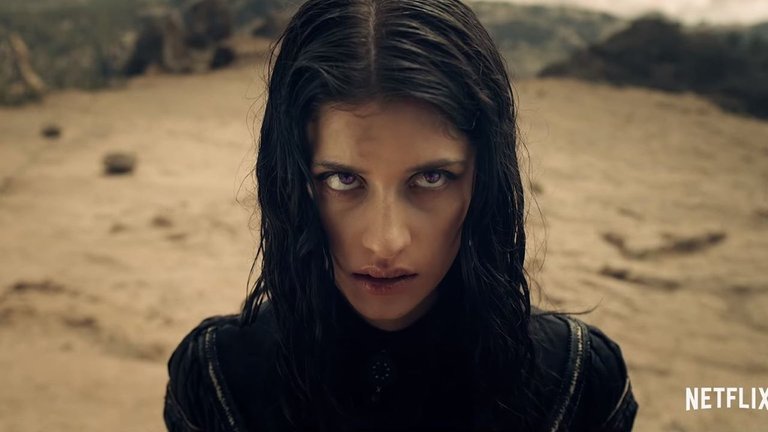
For this I can agree on the shallowing of this series relative to books, but I partially blame it on budget and translation. Let's assume that Poland would be as rich as the UK or the USA and we would adopt some books from a poorer country, e.g. Asian. I assume that we would not understand or change certain things that would be important for the local community. Anyway, even if you ignore such things, we always lose something with every translation. The role of creators in adding something from each other or minimizing losses. I'm not going to defend everything, because some changes are simply unprofitable. For example, the scenes in Brokilon are just as hopeless as battles. Not because the dryads are black. Their thread is simply boring, poorly written, ill-considered (what do they need crossbows for, since they are the best archers on the continent, and at most eminently talented archers or Zerrikanki can be better?). Why did the dryads shoot at the black elf, not Ciri? If I remember correctly, they also shot at the beginning of the book in the book. Not to mention that it gets even worse when Dopler-Myszowór enters Brokilon (how did he get through without a problem, how were Ciri and her companion's problems done a moment ago). The concept of a forest with its own microclimate is nice, the general idea for its inhabitants in total, but only that, the rest is shit. May it improve, how Geralt will get there after the fuck that Vilgefortz will give him.
nc_ohc=yphXUPYfKzMAX_6lVK&_nc_ht=scontent-frx5-1.xx&_nc_tp=6&oh=5dac915a4d437fe58ae8426d8d684892&oe=5EF28ACC
Ciri's thread is pretty cool, but he loses through Brokilon and his initial trips with Dara. As for Cirilla's parents, I have already written about Yenn. Apart from her quasi-feminist tendencies, this is the character I know from games and books. Geralt is different. When they announced that Superman would play Geralt, I was a bit skeptical. Fact, from the beginning I said that it was a good choice (not the best, but far from bad - the dimensions of Cavilla itself roughly match the book description of the White Wolf), but you know - I had a bit of uncertainty. After the first screening, I defended this actor, and after the second I know that this is my Geralt. You can see that Henry played the third part of the game and read the books because he behaves like the one from Sapkowski's pen. A small reptile, often grunts, grunts, although sometimes it can shut its mouth and roughly knows when to say what to say, sometimes it is so stubborn that it cannot be reasoned. If something comes to his mind, he will do it, even if the rocks shit. I didn't notice a single departure - he often repeats words similar to those in the book. Is it about God, thoughts about passing, adapting to the current reality? Watch the series and read volume 1 and 2, you really need a lot of bad will to say that "this is not Geralt of Rivia, about which Andrzej Sapkowski wrote!" or something like that.

Well, if it doesn't get too sweet, let's talk about battles that have been fucked up. To put it mildly. What idiot sends cavalry into battle in such a situation? The strength of cavalry, even light, is based on the speed and trampling of infantry. If the infantry is not heavily armored or prepared for long spikes (and the Nilfgaardians were not in this battle any more), then even lightly armored horse troops enter them, like a hot knife in butter. They are not used in such a situation as in the series. In unfavorable geographical conditions (the infantry goes from the hills, the Cintrians were downstairs), and with a difference of several meters (before the pony gains momentum, it will reach a few wet boys and easily kill the mount and its knight). And this talk during the battle - what's up, let Calanthe talk, stand like a stake, Nilfgaardians wait. Eist, unfortunately, was not lucky, because camper-Cahir shot him a beautiful headshot. The battle for Sodden Hill was more sensible, but there was a lack of budget in her case. This can be seen from the ridiculously small number of Nilfgaardians and incomparably smaller heroism of wizards. Sapkowski often mentioned her, whether in the form of memories of Triss Merigold, or stories, songs. The meme with the source material and Netflix adaptation fits here perfectly - the first one is impressive, the second one causes laughter. Well, it was impossible not to laugh when you see Triss defending the gate to the fortress, summoning some vines to stop a few Nilfgaardians. And this strange magic - the types sacrifice their lives to make a menacing fireball, and Yennefer bounces them like Goku's Freezer energy balls before casting Genki Dama. But not that I'm complaining - I really liked the use of magic and other races in combat conditions. Poisonous mushrooms, powdered dimerite, an artificial fog of war to mask moving troops, especially halflings firing explosives from a slingshot that wounded the ricochet. Give more of this in the next seasons and it will be horny.
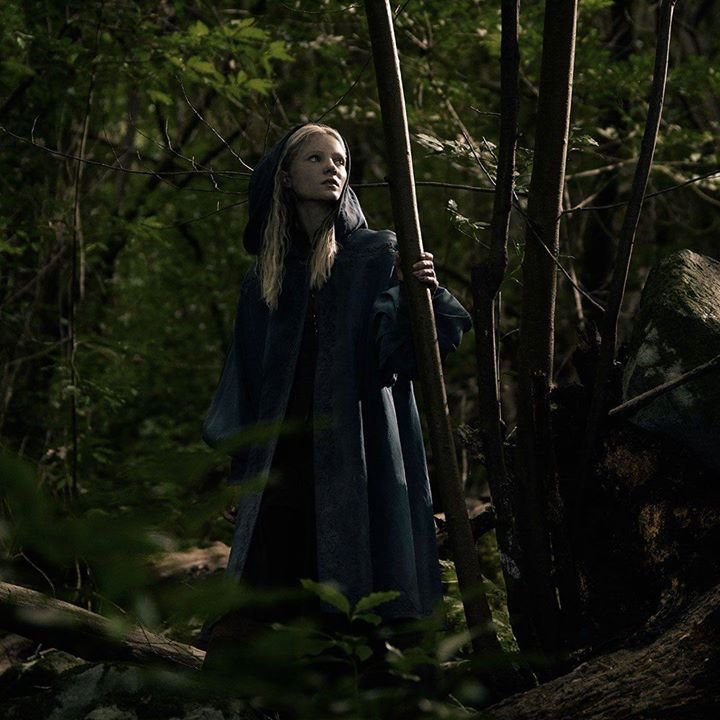
And now let's talk about something less bad, i.e. episodes with Dragon and Sylvan. The episode with Borchem Trzy Kawki was quite cool. I didn't mind the older version of the knight, but I preferred Andrzej Chyra in this role. It fits better with this book, especially in the context of the sex scene with Zerrikankami, which was missing in the series. I just didn't like the scene with the kiss while defending the dragon's egg, because it was inserted completely senseless. As for complaints about the dragon, this is where I will stand up for Netflix. I do not know if this was the intention of the creators of the series, but I am willing to bet for 2 English pounds, yes. The dragon resembles a Slavic viper (link at the bottom of the review) and from this perspective, in fact, the peasants could regularly mistake the forklift with the dragon. He also uses telepathy, just like he does in the book. I liked the other changes because the episode had more action thanks to it. It is different in the case of the episode with Sylvan. Not only was the source material cut to the necessary minimum, but the episode was in my opinion, at most so-so. He doesn't piss me off, however, because I didn't like this story very much, and it was more fun in the series - a quarrel between Silvan and the Witcher, overzealous Dandelion and the moment Geralt hits him on the balls. I mention this from the reviewer's duty.

But some of the changes were for good. At the first screening I was disturbed by the scene in which Pavetta lost control of her power and levitated with Duna, but at the second it was already ok. Maybe I should not say this before reading this chapter for comparison, but it seems to me that the creators of this episode did better work than Sapkowski. Texts about destiny and the whole envelope around this thread fared rather better than in the book. The fact Sapkowski gave me more reasons to think about, but I say it from the perspective of all volumes, not one of the chapters. However, I still didn't like the inba in the castle, this fight between the inhabitants of Skelige and Cintra was too artificial for me. I liked the changes in the Strzyga story moderately. Triss Merigold took over the thread of one character, the conversation between Geralt and Foltest looks different, and the investigation has changed slightly. The introduction from the story "The Witcher" from the volume "The Last Wish" was used to adapt the story of Renfri. In the Netflix version, Geralt learns about Striga from a companion, and then goes to the miners, from where the warriors of King Foltest take him. I'm not sure if I prefer Netflix or Sapkowski, but on the other hand, it was fun to see something different.
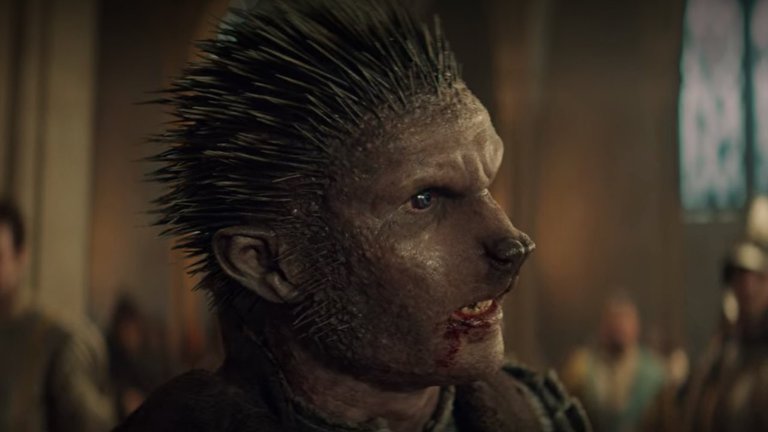
The characters resemble or resemble their progenitors, and the deviations between them are more or less the same as in the case of games. You can see them, but if you think about it longer and look at the whole picture, there is not much difference between them. Even those unfortunate Nilfgaardians who have impractical and tacky armor have been portrayed, as in a book. A large crow-black mass that floods the battlefield and devastates everything that stands in its way. It works in accordance with the war doctrine of Emhyr var Emreis - "Burn, destroy, fuck up everything that is unnecessary, including people, in the most brutal way possible. What is useful, loot carts, and slaves chained and taken to the mine." The words of Fringilla Vigo and others talking about the White Flame are also familiar. Emhyr is a cruel man who is better not to piss off, but you can't say that he doesn't give you space for development or the necessary resources (human, intelligence, financial, etc.). Vilgefortz's plan makes sense, and its serial counterpart behaves just like the book's. I assume that they will roughly lead this story as they did in their original form, if so, then in no way is it ruled out as Sapkowski presented it. He is a handsome, cunning, wise, intelligent, and thoughtful man. He knows that the implementation of the plan will not be easy, but it has plenty of time and is strong enough to be able to implement it. In the series, he stirred up the north and south magicians to weaken and disrupt both groups, some magicians mocking his fighting skills. During the battle for Sodden, he could give up to Cahir or get along with him (after all, Emhyr and Vilgefortz had long worked together in books). Events from the end of the battle and in general the way he behaved after regaining consciousness strongly suggest that it was a game on his part. I repeat myself, but if you compare Vilgefortz's threads from the book with the serial ones, you probably wouldn't feel much difference.

Many people complain about the fact that the series does not adapt exactly volumes 1 and 2. In my opinion, this is a + decision. Geralt's character and his world are known mainly to players, and the story moved 1: 1, would not necessarily buy viewers who do not know this universe. The creators had to use things from later volumes to make the series more attractive to an ordinary viewer, and it came out better than the clinging to Geralt who walks alone on the trail. Sure, this can also be presented very well, but it seems to me that the world seen only from Geralt's perspective would be less interesting for the recipients. Of course, the games did a phenomenal job, but players and viewers are a little two different groups. I have mistakenly identified them with myself for years, but after a few events (e.g. with such interest among gamers in most of the film adaptations of games), I became convinced of wrong reasoning. The fact is, both groups have a lot in common, but that doesn't make them the same. Although the birds have a lot of dinosaur genes, they are not, are they?

They finished the series at the perfect moment, leaving us a feeling of slightly unsatisfied. You can complain that it looks like someone suddenly broke the film, but for me, it was a good procedure. Thanks to this, viewers, even if they know the continuation thanks to the books, are more interested in the continuation. It was not a perfect series, it suffers from a few drawbacks, but taking into account its overall nature, it could have come out a lot worse. It did bother me a bit that on the continent the characters are not only white, but it is a detail that should not affect the assessment too much. Especially since it is a creature that says a lot about why racism is shit as well as anti-racists, is shit (because exaggeration is bad in every direction, black people, or Arabs are also pushing for us, it's normal for human species). In addition, we have a sphere conjunction, which is a logical explanation. I can't find one to flatten "The Witcher" to the level of Western fantasy, because "Game of Thrones" and "The Lord of the Rings" are different from Sapkowski's work. "The Witcher" is harsher, as well as Eastern fantasy than for example Russian writers. Maybe I will give a bad example, but it's like living in the city and in the countryside - in the countryside, you have greater contact with nature and its rules. Death (due to the lack of hospitals, houses with the so-called deathbed and uncontrolled nature), sex (a bull or a horse takes a cow or a mare, how to roast a root, and parents must explain to the children what is going on, townspeople can see at most flushing dogs or cats), to the hardships of hard work (because only lucky people or talented people earn a lot easier, and most have to do more or less). The city is western fantasy, the village is eastern fantasy. Maybe an example that is too simplistic, but I lack adequate experience in these matters. I know eastern fantasy from stories read as a child, and western from a few books. Too small comparative base, hence I asked my colleague Kuba for an expert opinion, who confirmed my assumptions. On the other hand, as I mentioned in previous texts, "The Witcher" will be more understandable to recipients from England or Germany. I am referring to culture in developed civilizations, political and military structures, approach to school education, or such things as the names of the heroes, which in no case sound Slavonic. Such is Sapkowski's "The Witcher", a mix of various cultures from various corners of the globe.
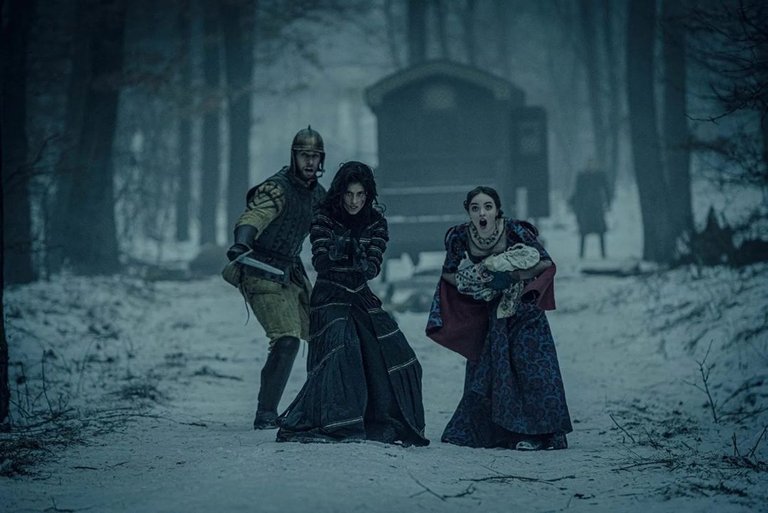
If the following seasons maintain the level, and the creators stick a little more to the script and get a larger budget, then we are waiting for a few seasons of a really good series. The worldwide success of the series and a fairly good reception (admittedly without peanuts in awe, but also without major complaints) should motivate Lauren S. Hissrich to work harder, and Netflix to more trust. I hope so because I assumed that the beginning would be worse, and it was quite good. Ino, embrace someone for battles next time to prepare yourself properly for the fair presentation of the Battle of Brenna. For me it's 7/10, maybe +7/10.
Thank you Ola, Karol, and Kuba for help with some fragments of the text.
Ratings I've given to individual episodes. Do not pay 100% attention to them, because I am uncertain of them myself, but they reflect my experience in approximately 80%.
- 6.5 / 10
2.4/10 - 8/10
- 7.5 / 10
- 6/10
- 6.5 / 10
- 6.5 / 10
- 6/10